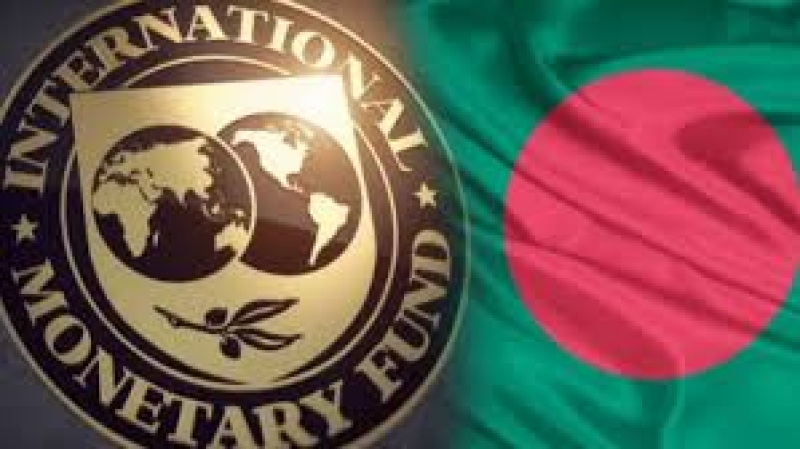- India Sees 9% Drop in Foreign Tourists as Bangladesh Visits Plunge |
- Dhaka Urges Restraint in Pakistan-Afghan War |
- Guterres Urges Action on Safe Migration Pact |
- OpenAI Raises $110B in Amazon-Led Funding |
- Puppet show enchants Children as Boi Mela comes alive on day 2 |
IMF Praises Progress in Bangladesh Bank’s Reforms

The International Monetary Fund (IMF) has acknowledged the progress made in the ongoing reforms initiated by Bangladesh Bank (BB), particularly in managing the country's economic challenges.
During a meeting between BB Governor Ahsan H. Mansur and an IMF delegation led by Mission Chief Chris Papageorgiou at the BB headquarters in Dhaka, IMF officials expressed concern about the country's revenue collection performance. However, they recognized the strides made by the central bank in advancing necessary reforms.
"The IMF delegation acknowledged the significant progress in the reforms initiated by Bangladesh Bank, particularly in terms of policy rate adjustments," said BB Spokesperson Arif Hossain Khan. "The IMF also mentioned that the policy rate may be lowered if inflation falls below 8 percent."
Khan noted that during the discussions, BB provided the IMF with projections indicating that inflation is expected to decrease to 8.2 percent by June, based on forecasts from both the central bank and the IMF.
The IMF team also raised concerns regarding the liquidity status of domestic banks. "The delegation specifically inquired about liquidity in 12 banks. The governor assured them that, following the implementation of liquidity support measures, only five banks are currently facing liquidity crises, while the rest have recovered," Khan stated.
Additionally, the IMF team questioned whether banks facing liquidity challenges are still disbursing loans. "The governor clarified that although these banks have ceased issuing regular loans, they continue to offer limited lending, primarily to the SME and agricultural sectors, under various refinance schemes facilitated by Bangladesh Bank," Khan added.
The meeting did not address issues related to non-performing loans, foreign reserves, or the exchange rate, Khan said.
Overall, the IMF's feedback highlighted the central bank's efforts in managing the country's financial stability, despite ongoing challenges.

